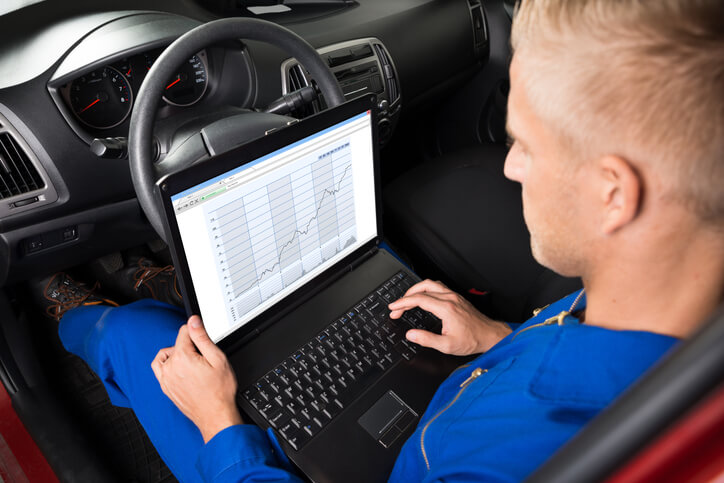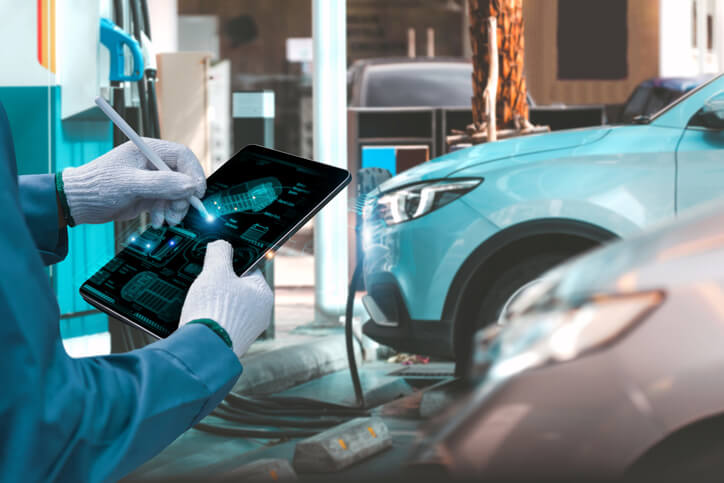How Data Logging Is Changing the Way Mechanics Diagnose Problems
Today’s vehicles are more connected, complex, and computer-driven than ever before. For the modern electric vehicle mechanic, intuition and traditional troubleshooting alone aren’t enough. Instead, technology, especially data logging, has become a vital part of the diagnostic process.
Data logging allows technicians to capture and interpret real-time vehicle data, helping them detect subtle performance issues before they become major problems. At the ATC, students enrolled in our hybrid technology training learn how to use these tools effectively, gaining hands-on experience with the same systems used in today’s professional shops.
What Is Data Logging in Automotive Diagnostics?
Data logging records a vehicle’s performance metrics over time using specialized tools or software. Mechanics can track details like engine speed, temperature, voltage, throttle response, and battery efficiency.
By analyzing this ongoing data, they can spot issues, such as misfires, charging inefficiencies, or sensor faults, that short diagnostic scans might miss. For electric vehicle mechanics, this precision is especially valuable, as EVs depend on complex high-voltage systems and sensors for both performance and safety.
Why Data Logging Matters for Electric and Hybrid Vehicles
Unlike traditional combustion engines, hybrid and electric vehicles (EVs) operate on complex electrical and software systems. These systems monitor and adjust thousands of parameters per second, from regenerative braking patterns to battery charge distribution.
Data logging tools allow mechanics to see what’s happening inside these systems in real time. For example:
- EV Battery Health: Track charge cycles, temperature variations, and energy efficiency over time.
- Motor Performance: Identify inefficiencies in electric motor output or regenerative braking.
- Charging System Diagnostics: Detect voltage irregularities or communication errors between the battery and charging station.
Through hybrid technology training, students at ATC Surrey learn to interpret this data using manufacturer-specific software and diagnostic tools. This skillset is becoming essential as more EVs enter the Canadian market and service facilities demand technicians who can handle high-tech diagnostics confidently.

How Data Logging Improves Efficiency and Accuracy
In the past, mechanics relied heavily on driver feedback and trial-and-error testing. While experience remains invaluable, data logging adds a layer of accuracy that minimizes unnecessary repairs and speeds up diagnostics.
Here’s how it makes a difference:
- Faster Problem Identification: Data logs highlight exactly when and where an issue occurs.
- Enhanced Record Keeping: Service shops can maintain detailed vehicle performance histories.
- Better Customer Communication: Mechanics can show visual data to help customers understand needed repairs.
- Reduced Downtime: Predictive insights allow technicians to catch problems early, avoiding costly breakdowns.
For example, a data log might reveal that an electric vehicle’s battery temperature spikes only during high-speed charging. Instead of replacing multiple components, a mechanic can go straight to the root cause, saving time and resources.
Learning Data Logging With Electric Vehicle Mechanic Training at ATC Surrey
At ATC Surrey, electric vehicle mechanic trainees don’t just read about diagnostic technologies; they use them. Our hands-on labs simulate real-world conditions where aspiring technicians practice reading and interpreting data from different vehicle systems.
Training includes:
- Using onboard diagnostic (OBD-II) tools and advanced scanners.
- Understanding and graphing sensor data.
- Analyzing EV performance metrics across varying driving conditions.
- Applying insights to repair planning and system calibration.
This approach prepares graduates for a fast-paced automotive industry where digital diagnostics are the norm, not the exception.

The Future of Vehicle Diagnostics
As vehicles continue to evolve, so will the role of the technician. Data logging represents the new frontier of vehicle diagnostics, where precision meets technology. For aspiring technicians, this skill means staying ahead of the curve in a fast-changing industry.
Future technicians will need to analyze larger data sets and collaborate with software engineers to refine performance insights.
Gain the knowledge and confidence to adapt to emerging diagnostic technologies through automotive school?
Contact ATC Surrey for more information.


